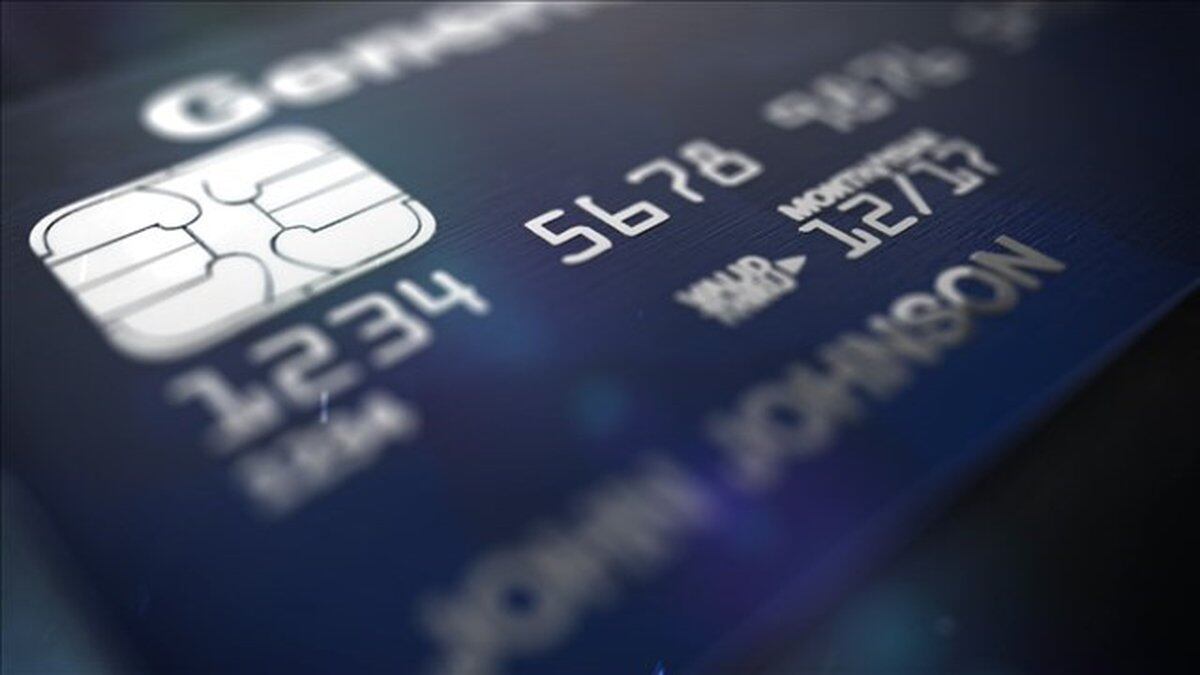

Finance
What Is The Late Fee For A Credit Card
Published: February 22, 2024
Learn about credit card late fees and how they can impact your finances. Understand the consequences of missing credit card payments and how to avoid late fees.
(Many of the links in this article redirect to a specific reviewed product. Your purchase of these products through affiliate links helps to generate commission for LiveWell, at no extra cost. Learn more)
Table of Contents
Introduction
Understanding Late Fees on Credit Cards
Credit cards have become an integral part of our financial lives, offering convenience and flexibility in managing expenses. However, failing to make timely payments can lead to additional charges, commonly known as late fees. In this article, we will delve into the intricacies of late fees for credit cards, exploring their impact and providing insights into avoiding these penalties.
Late fees are charges imposed when the minimum payment on a credit card account is not received by the due date. While the specific terms and conditions may vary among different card issuers, understanding the implications of late payments is crucial for maintaining financial wellness.
Late fees not only have immediate financial repercussions but can also affect credit scores and overall borrowing capabilities. By comprehending the dynamics of late fees, individuals can make informed decisions to effectively manage their credit card accounts and avoid unnecessary penalties.
Throughout this article, we will examine the factors that determine late fee amounts, the potential ramifications of incurring these charges, and proactive measures to prevent late payments. By gaining a comprehensive understanding of late fees for credit cards, readers will be empowered to navigate their financial responsibilities with confidence and prudence.
Understanding Late Fees
What Are Late Fees on Credit Cards?
Late fees are penalties imposed by credit card issuers when cardholders fail to make at least the minimum payment by the due date. These fees serve as a deterrent against delayed or missed payments and are outlined in the terms and conditions provided by the credit card company. Understanding the specifics of late fees is essential for responsible credit management.
When a credit card payment is not received by the due date, the cardholder may incur a late fee, which is typically a fixed amount. This fee is in addition to the outstanding balance and any interest charges accrued. It is important to note that late fees can vary based on the credit card issuer and the individual’s credit agreement.
Furthermore, the timing of late fee assessments can differ among credit card companies. Some issuers may impose the fee immediately after the missed due date, while others might offer a grace period before applying the penalty. Familiarizing oneself with the specific terms related to late fees within the credit card agreement is crucial for avoiding unexpected charges.
Late fees are designed to encourage responsible financial behavior and prompt payment of credit card balances. By comprehending the implications of late fees, cardholders can prioritize timely payments and mitigate the potential impact on their financial well-being. In the subsequent sections, we will explore the varying amounts of late fees, the repercussions of incurring these charges, and proactive strategies for avoiding late payments.
Late Fee Amounts
Understanding the Costs of Late Payments
The specific amount charged for a late fee on a credit card can vary depending on the credit card issuer and the terms outlined in the cardholder agreement. While the exact figures differ among providers, late fees are typically within a predetermined range, often ranging from $25 to $40 for the first instance of a late payment.
It’s important to note that subsequent late payments within a certain timeframe may result in increased late fees. Some credit card agreements stipulate escalating late fees for repeated delinquencies, emphasizing the significance of consistent, timely payments to avoid accruing additional charges.
Moreover, the late fee amount is distinct from the interest charged on the outstanding balance. Late fees are fixed penalties imposed for missed or delayed payments, while interest is calculated based on the remaining balance and the card’s annual percentage rate (APR). Therefore, minimizing late fees involves not only making timely payments but also managing the overall credit card balance to reduce interest accrual.
Understanding the specific late fee amounts associated with a credit card is essential for responsible financial management. By familiarizing themselves with the terms and conditions provided by the credit card issuer, cardholders can proactively strategize to avoid incurring unnecessary late fees and mitigate the financial impact of delinquent payments.
In the subsequent section, we will explore the broader implications of late fees, including their potential effects on credit scores and overall financial well-being.
Impact of Late Fees
Understanding the Consequences of Delinquent Payments
Late fees for credit card payments can have far-reaching implications beyond the immediate financial penalty. One of the significant repercussions of incurring late fees is the potential impact on an individual’s credit score. Payment history comprises a substantial portion of credit scoring models, and consistent late payments can lead to a decline in creditworthiness.
Furthermore, a lower credit score resulting from repeated late payments can affect the individual’s ability to secure favorable terms for future credit products, such as loans or additional credit cards. Lenders often assess an applicant’s credit history to evaluate their reliability in meeting financial obligations, and a history of late payments may hinder access to competitive interest rates and favorable borrowing conditions.
Moreover, delinquent payments and the associated late fees can contribute to a cycle of financial strain, potentially leading to increased debt burdens and prolonged repayment periods. The accumulation of late fees and accrued interest can exacerbate the overall cost of outstanding balances, impeding progress toward financial stability.
Additionally, some credit card agreements stipulate that multiple consecutive late payments or a prolonged delinquency period may trigger an increase in the card’s APR. This can result in higher interest charges on the remaining balance, compounding the financial consequences of late payments.
By comprehending the broader impact of late fees, individuals can recognize the importance of prioritizing timely credit card payments and actively managing their financial responsibilities. Proactive measures to avoid late fees not only mitigate immediate financial penalties but also contribute to long-term financial well-being by preserving creditworthiness and minimizing the overall cost of credit card usage.
In the subsequent section, we will delve into effective strategies for avoiding late fees and maintaining responsible credit card management practices.
Avoiding Late Fees
Strategies for Timely Credit Card Payments
Preventing late fees on credit cards requires a proactive and disciplined approach to financial management. By implementing effective strategies and leveraging available resources, individuals can mitigate the risk of incurring late fees and maintain control over their credit card accounts.
One of the fundamental steps in avoiding late fees is to establish a systematic approach to payment reminders. Setting up alerts through the credit card issuer’s online portal or mobile app can serve as a helpful prompt to submit payments before the due date. Additionally, leveraging personal finance apps or calendar reminders can provide an extra layer of notification to ensure timely payments.
Automating credit card payments is another valuable tactic to prevent late fees. By scheduling automatic payments for at least the minimum amount due, individuals can mitigate the risk of overlooking payment deadlines and potentially incurring late fees. It is essential to monitor account balances to ensure that sufficient funds are available to cover the automated payments.
Furthermore, creating a financial buffer by maintaining an emergency fund can serve as a safeguard against unexpected circumstances that may impact the ability to make timely credit card payments. Having a financial safety net can alleviate the stress associated with potential cash flow disruptions and reduce the likelihood of late fees due to unforeseen financial challenges.
Regularly reviewing the credit card statement and payment due dates is imperative for staying informed about upcoming obligations. By actively monitoring the account activity and payment deadlines, individuals can identify any discrepancies or potential issues well in advance, allowing for timely resolution and preventing late fees.
Lastly, seeking assistance from credit counseling services or financial advisors can provide valuable guidance for individuals facing challenges in managing credit card payments. These resources offer expertise in budgeting, debt management, and financial planning, empowering individuals to make informed decisions and navigate their credit obligations effectively.
By implementing these proactive strategies and leveraging available tools, individuals can minimize the risk of incurring late fees, maintain control over their credit card accounts, and cultivate responsible financial habits for long-term stability.
Conclusion
Navigating Credit Card Responsibilities with Prudence
Understanding the intricacies of late fees for credit cards is paramount for individuals seeking to manage their financial obligations with prudence and foresight. Late fees, while serving as a deterrent against delinquent payments, can have multifaceted implications that extend beyond immediate financial penalties. By comprehending the nuances of late fees and their potential impact, individuals can proactively strategize to avoid these charges and maintain control over their credit card accounts.
Throughout this article, we have explored the fundamental aspects of late fees, including their definition, varying amounts, and the broader consequences of incurring these penalties. From the potential effects on credit scores to the strategies for preventing late fees, the comprehensive understanding of late fees empowers individuals to navigate their credit card responsibilities with confidence and responsibility.
It is evident that timely credit card payments not only mitigate the risk of late fees but also contribute to the preservation of creditworthiness and long-term financial stability. Implementing proactive measures, such as payment reminders, automated payments, and financial planning, can significantly reduce the likelihood of incurring late fees and foster a disciplined approach to credit management.
Ultimately, responsible credit card usage involves not only making timely payments but also actively monitoring and addressing potential challenges that may impact payment schedules. By leveraging available resources, seeking assistance when needed, and maintaining a proactive mindset, individuals can navigate their credit card responsibilities with prudence and foresight, minimizing the risk of late fees and optimizing their financial well-being.
By embracing the insights provided in this article and adopting a proactive approach to credit card management, individuals can cultivate a strong foundation for financial success and effectively mitigate the impact of late fees on their overall financial health.














